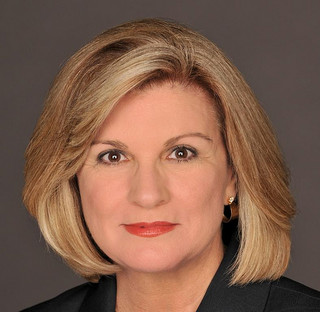
How to distinguish insoluble problems from great opportunities? Start by listening, a changemaker says
By Belinda Turner Lawrence, VP/CAO
At the Independent Sector conference this week, I was asked to facilitate a conversation about working with others amid change, to make change. While change has been a constant of my career, the conversation among non-profit leaders felt especially pertinent as I prepare to retire from Knight Foundation next month after 15 years in philanthropy.
As moderator Barbara Kibbee of Salesforce.org pressed the group to dig deeply, I asked myself what aspects of my experience were most relevant, as a new generation of leaders with new approaches to problem-solving, began to move up through the sector. The answer is almost everything I’ve learned about working together amid change is relevant, only more so, as change accelerates and partnerships becomes even more essential.
Here’s why most people don’t automatically embrace change. We bring our whole selves to decisions we make, based in part on our experience and in part on what we’ve heard from media or experts or other outside influencers. We tend to stay in familiar silos, react to new things with human complexity and offer value-laden solutions. We don’t naturally greet new ideas with an openness to explore and entertain them.
The gap can be even bigger between established leaders and the next generation, who come into the non-profit world believing, mostly correctly, that the solutions of the last century no longer work. What does still work, however, is engaging with others and embracing change. Here’s what I’ve learned about doing it:
- Have courage. Don’t be afraid. Consider change as opportunity, not turbulence and disruption.
- Listen empathically. Be present and balanced. Articulate the counter-argument. Consider another’s perspective.
- Be nimble. Expect the opportunity.
- Remember, it isn’t all about you. Okay, you don’t have to walk a mile in someone else’s shoes, but try 10 steps. Find where needs meet. Where is the intersection? Where does common ground exist? Soften your hard line. Get to know the other person, their story, be in their space. Experience how that influences your perspective.
- Act ethically. Be transparent and authentic with honor and integrity.
John W. Gardner, American statesman and founding chair of Independent Sector said, “We are all faced with a series of great opportunities – brilliantly disguised as insoluble problems.” How to see through the disguise? Start by recognizing that working with others, in challenging circumstances, is a great opportunity. In fact, helping others realize their potential may be the most powerful way there is to make change.
By Belinda Lawrence, vice president and chief administrative officer at Knight Foundation
Related: “Martinez, Coudreaut promoted to VP roles at Knight Foundation” on KnightBlog
Recent Content
-
Community Impactarticle ·
-
Community Impactarticle ·
-
Community Impactarticle ·


